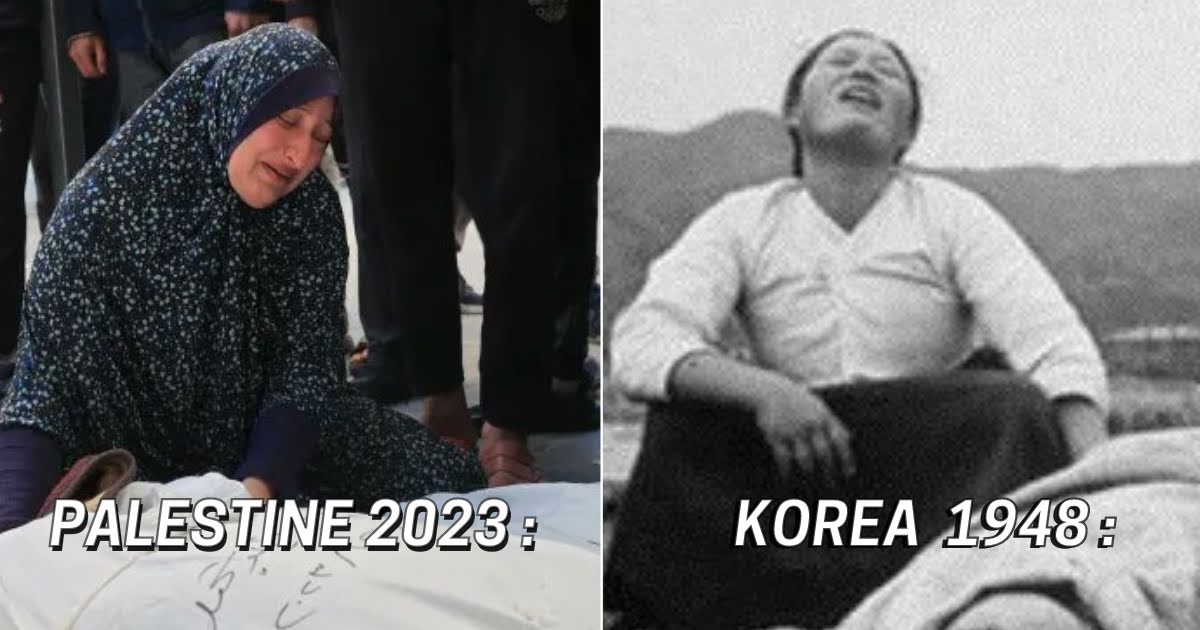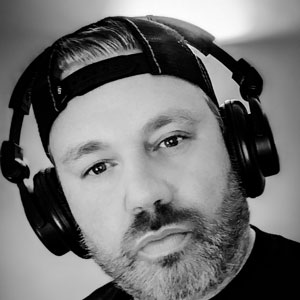The ongoing violence in Palestine, which has resulted in colossal loss of civilian lives, has drawn concerns and condemnation from across the globe. Human rights experts have called the Israeli aggression against Palestinians “mass ethnic cleansing,” citing the large death toll and alarming rate of displacement. Like many nations, a significant part of the South Korean population has voiced their support for the Palestinian people and has called for its liberation. While this support is based mainly on humanitarian grounds, there are a few additional facts that make Koreans uniquely empathetic to the Palestinian plight.
First is the striking parallel between the first “Nakba” of 1948 and the Jeju Uprising of the same year. The 1948 “Nakba” was the mass displacement and dispossession of an estimated 7,60,000 Palestinians from their homes as Zionist militias destroyed and erased nearly 500 Palestinian villages. The incident, which is considered ethnic cleansing by scholars like Ilan Pappé, led to the creation of the state of Israel. It was during this same period that Korea gained its independence from Imperial Japan and was arbitrarily separated into North and South Korea. This division along the 38th parallel led to a massacre that, as one TikTok creator, Anna Kook, succinctly pointed out, “the US has not admitted or apologized for” to this day.
Your browser does not support video.
After the Korean peninsula was partitioned, thousands of Koreans on Jeju Island refused to accept the decision, especially after fighting long and hard for their country’s liberation. Protests broke out all over the island, but the movement was brutally suppressed under US military supervision. Over six years, more than 30,000 people were killed in Jeju. It essentially wiped out 10% of the island’s population. It’s remembered as the “April 3rd massacre” in South Korea.
Your browser does not support video.
Your browser does not support video.
The US claimed that these “rebels” were communists and they were simply trying to stop a communist insurgency in the South. But Koreans still carry immense trauma from the massacre and continue to fight for an apology.
Your browser does not support video.
Your browser does not support video.
Writer and translator Anton Hur, who worked on BTS‘s memoir Beyond The Story, acknowledged Anna Kook’s video, citing that Han Kang’s book We Do Not Part deals with the same subject matter, which is otherwise not talked about enough in South Korea today.
Han Kang’s WE DO NOT PART is about this incident, which is not that often talked about in South Korea to this day despite it likely being the true trigger event that set off the Korean War. https://t.co/WGsCF9lU6h
— Anton Hur (@AntonHur) December 13, 2023
Just as the Imperial British Government arbitrarily dissected the Palestinian territory, leading to a partition plan adopted by the United Nations at the end of the British Mandate in the region, South Korea, too, was arbitrarily divided by the United States at the 38th parallel border in 1948. The military enforcement of these borders in both regions created dire consequences that brought about colossal suffering for both Koreans and Palestinians for over 70 years.
Another equivalence that Koreans have traced between themselves and Palestinians is the emotional exhaustion of their pain being denied. Youngmi Mayer, another Korean TikTok creator, posted a video saying that both groups know “what it feels like to have an oppressor who acts like the f*cking victim all the time.”
Your browser does not support video.
Mayer’s video was actually in response to another Japanese creator, who talked about how she found parallels between herself, a profoundly patriotic Japanese person who was oblivious about Imperial Japan’s colonial past for a long time, and people in Israel. Mayer said she was happy that a Japanese person started the discourse because “it’s their responsibility.”
Your browser does not support video.
She pointed out how public image building has almost absolved Japan of its colonial past, but Koreans still can’t mourn their dead without being criticized. The dehumanization of the entire Korean population carries on beyond the lifespan of Imperial Japan, but the government still refuses to acknowledge the country’s past crimes.
Your browser does not support video.
Your browser does not support video.
Your browser does not support video.
Mayer also pointed out that while Japan is considered to be a victim by most, including the creator she was responding to, for the Hiroshima and Nagasaki bombings, thousands of Koreans lost their lives in those bombings, too. She acknowledges that the death of Japanese civilians was also unfortunate; the tragedy of the Korean victims was that they were taken to Japan mostly forcibly as enslaved people.
Your browser does not support video.
Your browser does not support video.
The creator says that even if Japanese or Israeli people gather up the courage to criticize their authorities’ actions, “it’s too late” for victims like Koreans and Palestinians.
Your browser does not support video.
Your browser does not support video.
However, Mayer said that this acknowledgment of guilt is the only way forward for cultures that were or are engaged in an oppressor-oppressed dynamic to achieve peace.
Your browser does not support video.
While South Korean citizens continue to show solidarity with Palestinians, the country voted in favor of an immediate ceasefire and release of all hostages at the United Nations General Assembly on December 13, along with 152 other countries.
BREAKING: UN General Assembly ADOPTS resolution demanding immediate humanitarian ceasefire in Gaza, as well as immediate and unconditional release of all hostages
FOR: 153
AGAINST: 10
ABSTAIN: 23
LIVE COVERAGEhttps://t.co/ZqtRtIawGx pic.twitter.com/rAdk8BEmDL
— UN News (@UN_News_Centre) December 12, 2023




